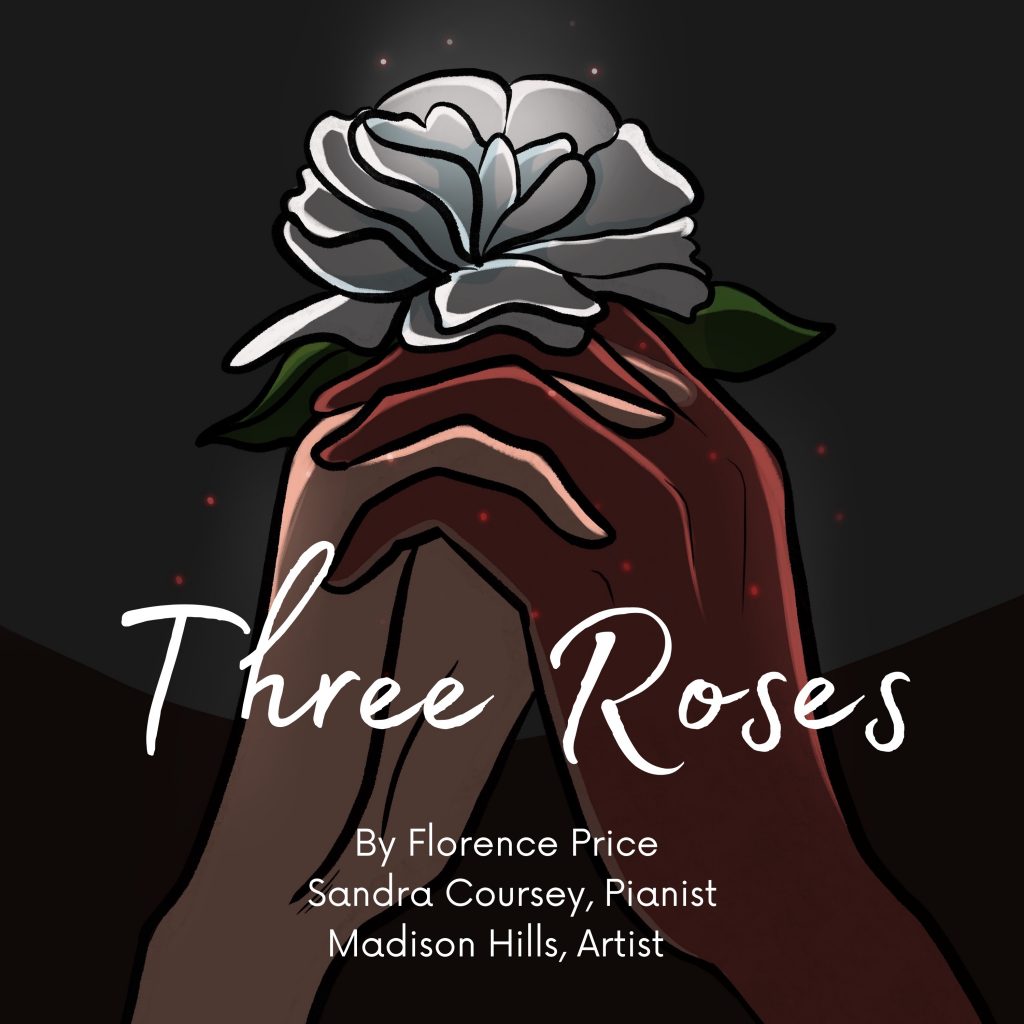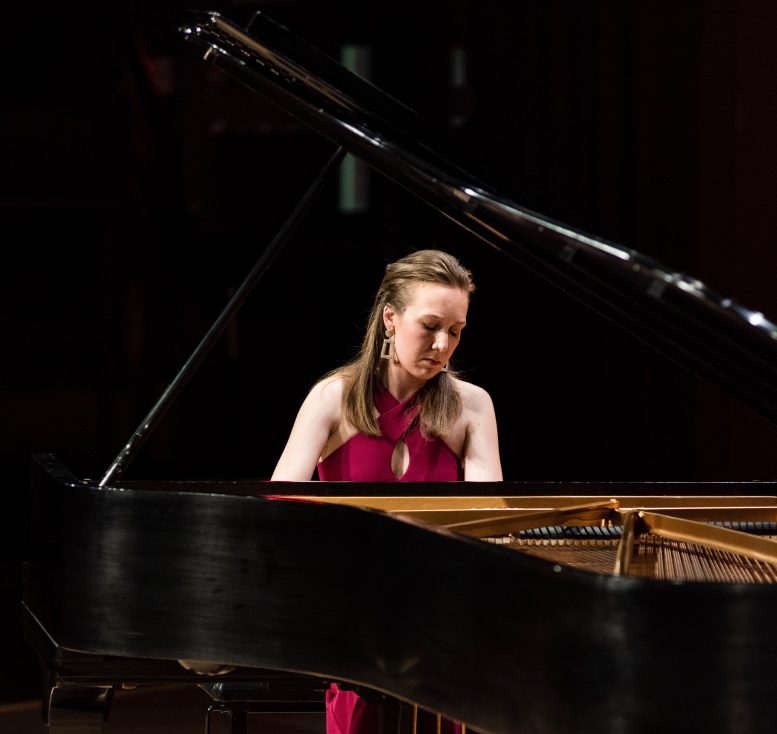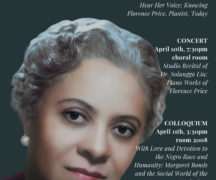By DAVID DUPONT
BG Independent News
Just as winter sets in, pianist Sandra Coursey is presenting listeners with summer blossoms.
Coursey, a doctoral student at Bowling Green State University, is streaming her performances of Florence Price’s “Three Roses” for solo piano.
Listeners can find the performances on her website, sandracoursey.com as well as YouTube and other streaming platforms.
The project is a continuation of Coursey’s mission to present music composed by women and other underrepresented groups.

Price was a mid-20th century composer, who was raised in Little Rock, Arkansas and made her career in Chicago. She was the first female African-American composer to have a piece, her E minor Symphony, performed by a major symphony orchestra, the Chicago Symphony.
Price made her mark as a symphonic composer – the Toledo Symphony Orchestra performed her “Mississippi River Suite” last November – but she also left a wealth of other music.
Much of that music, however, was almost lost. A trove of Price’s music including the “Three Roses” were discovered in 2009 in an abandoned house slated for demolition. New editions of the works by Michael Cooper were recently published.
Coursey, who is in her first year of the doctorate in contemporary program at BGSU, came upon the works in the spring.
Like everyone else, she wasn’t going anywhere because of COVID-19. She was searching for music for a recital she was planning around the theme of gardens. She ordered the pieces, composed in 1949. “It was just by chance,” Coursey said. “I didn’t know what they would sound like” but “they fit the theme.”
Then she played them. “Wow, these pieces are amazing!”
They are character pieces, the pianist said. Each explores in music the qualities each rose is associated with –yellow for friendship and love, white for commitment and marriage, and red for romance and passion.
“They’re really just gorgeous,” Coursey said. “They have an understated, refined elegance which I really like. They’re not overembellished, not meant to be show-off pieces for the pianist. They’re there to showcase the beauty of the rose itself.”
The music draws on European romanticism with some influence from Impressionism. Coursey added: “I hear a lot of influence of her time in the South and Arkansas. … It’s really like a melting pot of styles.”
That’s not surprising coming from an American composer living in Chicago. “She melds all these styles into one.”
The challenge of performing the “Three Roses,” Coursey said, is to perform them in a way that accurately reflected the composer’s intentions. They were left unfinished by Price, so “there were some musical decisions to be made by me,” Coursey said.
“It was difficult to find a balance between throwing my own voice in there and making sure I’m representing what she wanted. … Everything has to be very well thought out because nothing can hide in an open texture. … You have to open yourself up to the exposed nature of these pieces.”
She feels a kinship with Price, who died at in 1953 at 66.
They are both women, musicians, and teachers.
Coursey feels Price’s music has a place in the teaching studio as well as the recital hall.
Coursey will perform the pieces garden inspired program next semester. The program will also include Price’s “Clouds.” Later this month she also plans to post a podcast on her site devoted to Christmas pieces by British composer Judith Bingham.
Coursey drew on the artistic talents of one of her students, 14-year-old Madison Hills, of Toledo, to create an illustration of the three roses. Madison was Coursey’s piano student at Forte Music School in Toledo, and they’ve worked together designing programs before.
Coursey, who grew up in Oklahoma City, started playing piano in first grade. Her sister was already taking lessons, and Coursey decided she wanted to learn as well.
As a third grader she heard a performance of a piano concerto with the Oklahoma City Symphony. Coursey learned that you could go on to get a doctorate in playing piano. Her path was set.
She received her undergraduate degree in piano performance from Oklahoma City University. From there she came to BGSU for her master’s degree, studying with Solungga Liu, who is still her teacher.
It was during her undergraduate studies that she grew dissatisfied with the concentration on the standard repertoire of Chopin and Beethoven. “I’m not playing any music by people who look like me,” she realized.
The subliminal message was that there’s “only so much you can do in classical music world,” she said. Even if the performer was a woman, she’d be playing something by a man.
Women had been composing for centuries, but they tended to be relegated to being salon music.
This led to an interest in contemporary music and underrepresented composers in general, she said. “Bowling Green is pretty much the hub of contemporary music. That’s what drew me here. There’s not a better place for me if I want to be a vessel for underrepresented voices. I’m in the right place to do that right now,” Coursey said. “I really became inspired this year with Black Lives Matter movement. Everything is changing rapidly. If there’s a time to do it, it’s now.”


